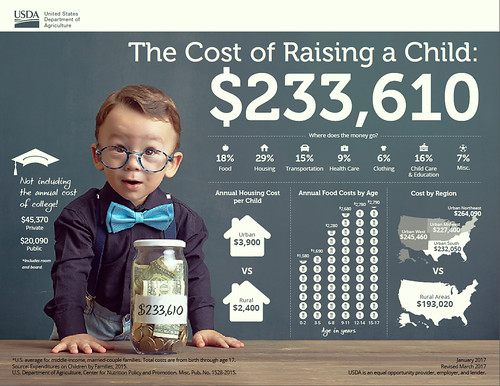By its very nature, the entire concept of reaching FIRE lies along the road less traveled. While it’s been blazed by our financial independence elders, laying crumbs alongside questions about savings rate, investing, and timelines—it’s still a rarity in the greater world.
On top of that, FIRE plans are for years—if not decades—ahead of you. You’ll have dodged many a proverbial bullet before you’re able to reap the seeds you’ve sown.
Following a path to FIRE is perhaps one of your greatest votes of confidence in your future self you can muster. You’re making a literal bet that you can resist the world’s marketing machine, pressure from friends or family, and even the simple “that’s the way it’s always been” aspect of the human routine.
By cutting back your spending in a dramatic way to save for your future self, you fight back against the world’s marketing machine to spend into oblivion.
FIRE is your idealistic self of today believing in your war-weary self of tomorrow.
We’re all going to become grizzled FIRE veterans in a different way. Let’s look at the the range of possibilities.
FIRE Is Different for You and Me
There will be shades of grey between our FIRE strategies that cover the spectrum from young and lean FIRE to a more rotund, elder FIRE.
In fact, there’s not really that much to FIRE.
The core tenants are pretty simple:
- Live below your means
- Save and invest the balance
- Retire, when you want, once your investments cover your expenses
Everything else is up for healthy debate. We can discuss, and we can disagree.
Money isn’t something most of us get to talk about in a real life setting. It’s just not an approachable subject for most of us. That means, for many, our only outlet for this discussion is anonymously online.
I certainly share much more about our financial situation with you, dear reader, than I do in real life with friends and family.
Understanding that the FIRE community is the only outlet for money talk many of us have makes it all the more important to be respectful and yet inquisitive about other’s decisions.
Too often I’ll spot commenters across our digital community losing sight of this.
You’re not an imbecile “working for the man” if you like your 9-5 job.
And sometimes turning down a high salary in drudgery to take a chance on a challenging opportunity filled with satisfaction is the smarter one.
In all the subcategories of FIRE—earning, saving, investing, etc.—we agree on so much more than we disagree as a community.
Let’s take a look at some of the major topics of FIRE and the range of points we can have a healthy discussion about that might just let us learn something new.
What makes a withdrawal rate “safe”?
While a 0.5% safe withdrawal rate is probably a bit too extreme in its conservatism, that doesn’t mean that 3.5% (instead of the typical 4% rule) isn’t a reasonable, more defensive approach.
You’re not suddenly a fool, toiling away extra years of your life at a job you hate.
Our latest annual FIRE budget suggests we’re working with close to a 2.5% SWR. And we plan on giving a lot more of it away to get closer to that 4% rate.
Similarly, if you’re tolerant of the risk, able to adapt, and want to reach your exit as quickly as possible the father of the 4% rule has suggested a 5.0-5.5% withdrawal rate could work:
And based on what I know now, in a very low inflation environment like we have now, if we had modest stocks, I wouldn’t be recommending 4.5%, I’d probably be recommending 5.25%, 5.5%, something like that, which is even going to enrage people even more because it’s higher than the 4.5%. But that’s what history has demonstrated.
Bill Bengen
Don’t let controversy seeking influencers and media divide us over decimal points at the limits.
The 4% rule [of thumb] exists to give us something to work with, to create a plan and execute on it. We should be able to adapt our personal situations, comfort, and mentality to fit a changing investment landscape while keeping an eye on the historical standard.
Destitution vs. exploding luxury
Saving $70K of your $100K salary to reach FI in 9 years while living on $30K/year doesn’t mean you’re destitute and subsisting on actual garbage. But it also doesn’t mean that it’s a life of luxury for everyone’s situation.
Our individual experience colors our expectations for what a satisfactory life looks like. The person who grew up in a wealthy household and similarly earns a high income as did their parents has different expectations from life than a person who might be the first to graduate college in their family.
In the context of FIRE, neither is better or worse—wrong or right. They’re different mathematical calculations for savings rates and retirement dates.
While income inequality is a very real problem around the world, and especially in the United States, FIRE functions the same for someone that makes $200K/year or someone that makes $40K/year.
They’re both able to retire in the same ~10 years if they save about two-thirds of their income.
In practical terms, is it generally easier to live on ~$66K/year versus $13K/year? Absolutely.
But the point of the FIRE community and our discussion of these two situations is to identify how it might be possible for either party to make it happen. It’s not to tear each other down.
Debt and emotion vs. financial math
Maximizing cheap leverage by retaining a mortgage (even when you don’t need it), or dialing it up to 11 by taking equity out of your house and investing in a diversified index fund might get you a few points ahead.
Chowing down on all the loans in your life like a malnourished debt-destroying caterpillar so you can breach your larval state and transform into the contented butterfly of financial independence without the stress of leverage to your mental health isn’t “worse”.
If tackling debt motivates you to keep going, so be it. If you’re comfortable with math that says investing edges out debt reduction for your situation, roll with it.
The goal is it forge a sustainable path for the long journey between your first dollar invested and the last.
Maximizing efficiency is for machines. Realize you’re not one.

Gatekeeping “retirement”
It’s often said that FIRE is two separate parts of a puzzle: financial independence and retiring early. While FI is required for a successful RE, that doesn’t mean that pursuing FIRE means you’re going to retire the day you hit FI.
But, then again, for some people that is the goal. They despise the time suck that is their job and they want out as soon as possible.
For others, they love their work. They feel fulfilled by the identity they’ve created through their careers and could keep saving lives, designing the future, or solving interesting challenges until their dying day.
Personally, I fall somewhere in the middle. I’ve ruthlessly cut all the work in my life where the purpose is to generate an income. Why do people work? For me, it’s to create. And I’ll probably keep doing it through my twilight years.
You’re too young/too old to retire
Pulling the trigger on retirement at just 30 years old (and with “only” $500K) isn’t too young.
At the same time, building up a nest egg of around $3.1M and hanging up your stethoscope at 43 isn’t too late.
There are countless decisions along the timeline of your life that will affect when you might be able to reach retirement:
- Will you enter adulthood and immediately start earning an income?
- Might you marry young and have kids?
- Is achieving a post-secondary education a priority?
- Could you pivot from one career to a totally new one?
- Are you going to try your hand at starting a business?
By setting some sort of idealized “FIRE age”, we reinforce the very stereotype we’re trying to fight with FIRE—that work is predestined to be a career with a set timeline (e.g.: retire at age 65).
Rather, FIRE is about building a financial operating system for your life that lets you efficiently reach financial freedom within the confines of the life variables you’ve defined.
You decide your timeline and make it happen through your own choices.
Relationships and money
Being single might be your way to control your finances and be fully responsible for your spending, saving, and investing.
But being married might let you have one of the truest forms of an accountability partner along with someone that can fill in your weaknesses while amplifying your strengths.
You might want to combine finances with your partner or keep them totally separated.
You might feel a debt of gratitude to the parents or guardians that raised you, and a need to support them in old age.
I went in with my brother on a one-bedroom condo a few years ago for [my parents]. It is being rented out right now and makes enough to break even. Once they move in, the 3 of us can share the costs of their condo and groceries.
Joe Udo, Retire By 40
Or, you might not have had the fairy tale childhood that leaves you feeling any connection to your ancestors.
And you might be somewhere in between.
I imagine that Jenni and I will write much more on this topic—both within our relationship personally, but also in regard to our respective families. We each had different experiences growing up, and even now, feel different responsibilities to our parents.
Relationships and money are just about as sensitive of a topic as they come in FIRE. Much of the reason is that everyone has very personal and different experiences, not to mention cultural expectations.
There is no one-size fits all answer that could possibly cover the spectrum of quandaries and potential solutions in the land of finances and relationships.
DINKs and children
DINKs (dual-income, no kids) get to supercharge their income on the path to FIRE.
Having kids could lengthen your FI timeline through diapers, daycare, and drama class. The USDA pegs the average cost of raising a kid at about a quarter-million bucks.

For you and yours, maybe having kids—even ignoring the financial part—isn’t part of your plan.
Now we have no problem wasting a whole day doing nothing, if that’s what we need. Would we feel that same way if we had kids watching us? We can’t really know, but it’s hard to believe we wouldn’t at least be asking ourselves that question.
Tanja Hester, Our Next Life
But $250K isn’t a prescription for the costs of children. There are countless examples of FIRE parents raising healthy, well-adjusted kids for much less—with $60K/child being in the realm of possibility.
Root of Good kids cost $3,300 per kid per year versus the USDA’s report of $12,978 per year. Stellar! We’re “saving” almost $10,000 per kid per year versus the average! And it gets even cheaper when you factor in tax savings due to children. […] In the end, kids can cost a little or a whole lot, with much of the cost differential explained by parental choices.
Justin McCurry, Root of Good
One element of having children that I personally think is often overlooked is in what they provide. There might be no deeper satisfaction in the world than creating life, forming your child in the ideal mold of your own work, and sending them off to leave a mark on the world far beyond your own grave.
On top of that, they sure do provide a way to spend your time and enjoy retirement without the need for fancy theater visits, luxurious vacations, or BMWs.
Choosing to (or not to) have kids is an individual decision. Neither has anything to do with FIRE itself, it merely affects the numerical inputs for your personal equation.
As a community, our goal should be to identify ways to deliver a healthy upbringing to the future of humanity without also loading it up with debt.
The value we—writers, forum users, commenters, social media participants, etc.—bring is in the discussion of how to incrementally improve the reader’s life.
FIRE Has No Rules
FIRE doesn’t come with a prescriptive set of rules to follow. It’s an idealistic pursuit of bettering yourself, your family.
A safe withdrawal rate has mathematical bounds, but you need to work with a projection that makes you feel comfortable.
The lifestyle your investments support needs to be something you and your family are comfortable with. Jenni and I are happy to buy used furniture but pay extra to live in the city. Perhaps you’re the opposite.
The day you decide to retire, you don’t report to The Retirement Bureau where you’re awarded a gold star. There is no strict definition of what retiring is. You get to decide at what age you’re going to make a big change in your life and redefine what work is to you.
Your family life has bearing on the financial burden you have to support. The lives of others range from just themselves to several kids, a farm’s worth of animals, and dependent parents. Your values for what’s important will dictate the obligations you feel you need to meet.
It’s not foolish to support the parents that raised you in their time of need any more than it’s selfish to opt-out of the base biological process of procreation. Our very ability to freely decide is what makes us human.
On this great spaceship Earth, we’re hurtling through the darkness alone as humanity.
Unless Percy rolled into some little green dudes today, we’ve only got each other to build the community we want to see.
![The first panoramic of the Perseverance Rover's new home [Source: NASA]](https://www.tictoclife.com/wp-content/uploads/2021/02/percy-mars-panoramic-first.jpg)
What do you think? Am I being too lax to say that FIRE has no rules? What hard-and-fast rules do you think are in play? What points of contention did I miss?


9 replies on “FIRE Isn’t Prescriptive (It’s a Spectrum of Personal Choices)”
Great article Chris. I totally agree that ? is a spectrum. A lot of people in the FIRE community don’t even want to retire early. Instead, they just want the independence that comes from building a nice big cushion of wealth. I think I fall into that category.
Yup! I think that’s rather common. I mean, it’s also natural to think folks will reach FI and there will be some period of transition to RE. For some people maybe it’s literal days. For others maybe it’s years, even decades. Like much of this; it’s a range, personal and different for each of our circumstances.
I can definitely see that happening to us. Maybe after a few stressful months at work or being passed up for a promotion.. Quite a few things could make us pull the trigger, actually. I guess time will tell!
FIRE definitely has no rules which is why so many people ask the same questions with different situations, ha! Living on 30k per year is undoable for some people living in very expensive COL cities with a family but where I live, I can live like a KING on 30k per year. I only spend $22k per year so far, anyway. And I still feel like there are areas where I can cut down a little bit more but I refuse to.
Retiring at 30 with 500k definitely seems so lucrative…. I wish to be in Purple’s position one day, I can’t wait!
Yea, there a wide variance even just in the US. The numbers get even crazier when you look beyond it.
I’m midway through a few of your articles, I’ll have some comments with thoughts coming your way 😉
Purple is great example of a modern low FIRE budget person. But really not that low. Similar to $1M for a couple!
We’re frequently under $21K/person around here 🙂
That is kind of you 🙂
That’s true, if she is married and her husband also brings $500k to the table, then it evens out.
My dad got handed a retirement package, sooner than typical retirement age. Because he had invested well, he went RE, because he happened to be FI. He is of the generation that worked 1 place for most of their career. If that can happen to someone after long term commitment, I decided to ‘hedge my bets’ and target FI.
I also watched my grandparents travel in retirement, back when people retired at 55! They still had plenty of energy, I don’t always see in people 67+. Aside from the idea if you are 70+ you can’t rent a car in the UK.
We will see how it all works out but having those loose long term targets is why I read FIRE blogs.
Hey Jacq!
Yep, things are a little different in the modern era of work. Pension plans are less common, we’re expected to navigate saving for retirement in our own ways.
Then again, it’s also indicative of more freedom to carve your own path. FIRE wouldn’t be possible in a society dictated by a clear payment and retirement schedule with no room to find ways to create a sort of “retirement timeline” arbitrage.
Thanks for coming by, and I hope you stick around!
Agreed. It’s called Personal Finance for a reason. Everyone has their own but the basic tenets are the same. How you get to financial independence is up to you.
The argument of buying a house vs renting vs paying off your mortgage has too many lenses for a “Correct answer.”
Some friends & family give me $hit about not wanting to buy a house, but hey that’s my personal choice, and I don’t need to argue the tenets of it.
If we were all so logical, Apple would be out of business because no one would spend $1000 on the latest iPhones.